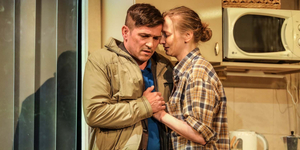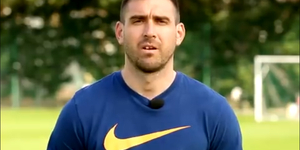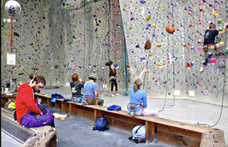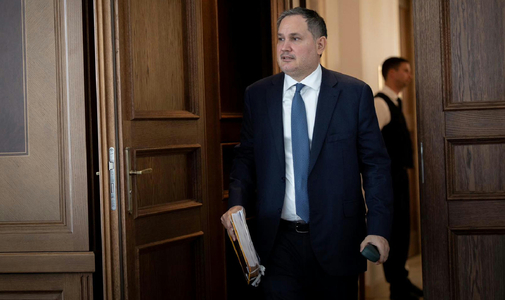The university professor Zoltan Laszlo Szabo has told several daily papers about how he was handcuffed and arrested on 13 April, and then held in custody for several hours, despite wanting only to bear witness to police actions by taking photographs. Szabo says he arrived on Szabadsag ter towards the end of a demonstration held by the Soviet war memorial. He noticed that a young man standing next to the memorial was surrounded by five or six policemen who ordered him to empty out his rucksack. The professor approached them and told them he wished to serve as a witness, observing how they acted. According to Budapest Police, the 61-year-old was preventing the police from going about their business, since "by his unjustifiable activities he was distracting the police from their work, making it harder for them to carry out their duties."
Csaba Farkas, who trains police officers, told
hvg.hu that any citizen who interferes with police officers doing their duty is endangering the success of their operation. It is forbidden, for example, to talk to bus drivers while they are driving, because this risks distracting them. For this reason, citizens may only comment on a police officer's activities in public if the officer asks the citizen's opinion. Furthermore, officers may not be photographed for no reason. This is because an officer is not a member of the public, but an individual engaged on official business. Officers may only be photographed with their consent. Photographs constitute a personal record, meaning it is necessary to seek the consent of any individual who is photographed.
As the police instructor continued, Szabo could also be arrested because he did not have a photo identity card with which to identify himself. Legal changes introduced on 11 March have made it illegal to resist authorised police actions, even passively. Szabo, the instructor explained, declined to leave the area even when asked to do so by police.
Under the law, an individual may be held in custody for an initial period of eight hours, which can be extended for a further four hours one time only. Legislators concluded that 12 hours was enough to establish the facts of the case and take a statement from a suspect. It is curious that Laszlo Zoltan Szabo was held in custody for six hours. If the professor's claim that his wife took his documents to the police station at Gyorcskocsi utca is true, then the authorities should have released Szabo immediately, thereby proving that we do indeed live in a European state governed by the rule of law.
We talked to Laszlo Zoltan Szabo, who told us that when his statement was being taken he was told that he was being fined Ft30,000 for "interfering with police actions and not leaving the area despite repeated requests to do so." He has not yet received official notice of this, leaving him eight days to decide whether to pay the fine or to make a formal complaint. He told
hvg.hu: "I do not want to leave things as they stand, because I would not like to see something similar happening to anybody else."
The constitutional lawyer Istvan Szikinger argues that the the facts of the case are not clear. The fine, he suggests, must be based on a government order that states, "whoever fails to cooperate with a police officer involved in an authorised activity can be issued with a fine of up to Ft50,000."
Szikinger disagrees with some of the police instructors arguments. He told
hvg.hu that the subject of a police action must accede to all requests, but bystanders are free to express an opinion. Police carrying out their duties on the street are not "public figures" but figures of public authority, who must be willing to accept criticism of their actions. It is permitted to take photographs of police as they carry out their duties unless the picture is a clear portrait of an individual policeman. So, if the photograph is not of a specific police officer, then there is no obstacle to taking pictures, even for people demonstrating on the street.
Szikinger argues that it is unclear what area Szabo had to leave, and why. He can hardly have been asked to leave a public space, since the public space belongs to all. The actions described did not pose a security risk, nor were any individuals or institutions endangered.
Szikinger said that the law on policing makes it clear that any police action whose effect disproportionately disadvantages others is illegal. This means that people who are arrested in order to identify them must immediately be released once their identity has been established - unless they are then taken into custody.
The law makes it hard to establish what, exactly, constitute "authorised police measures." The law says that police officers are in the right if they execute illegal orders. This means that patently illegal behaviour can become legal, since the police have no other choice under the law: they are obliged to carry out illegal orders, the constitutional lawyer argues.
'B.'

















